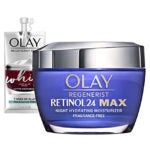The Best Retinol Creams for All Skin Types
Amongst all these serums and active ingredients that skincare experts keep talking about, the name “retinol” tends to show up very often. However, not everyone is sure what retinol is and why someone would want to use it. If that’s you, allow us to show you what retinol is all about and what retinol creams are a good choice if you’re in the market.
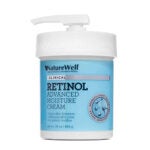
1. NATUREWELL Clinical Retinol Advanced Moisture Cream – Editor's Choice
- Price Range: $10 – $20
- Quantity: 1 pound
- Brand: NatureWell
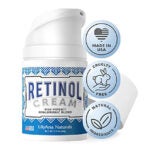
2. LilyAna Naturals Retinol Cream for Face
- Price Range: $20 – $30
- Quantity: 1.7 ounces
- Brand: LilyAna
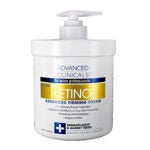
3. Advanced Clinicals Retinol Cream
- Price Range: $10 – $20
- Quantity: 16 ounces
- Brand: Advanced Clinicals
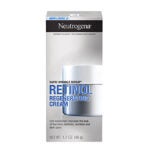
4. Neutrogena Rapid Wrinkle Repair
- Price Range: $20 – $30
- Quantity: 1.7 ounces
- Brand: Neutrogena
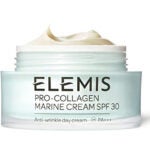
5. ELEMIS Pro-Collagen Marine Cream
- Price Range: $100 – $150
- Quantity: 1.6 ounces
- Brand: Elemis
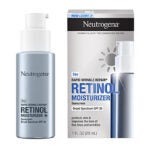
7. Neutrogena Rapid Wrinkle Repair Retinol
- Price Range: $10 – $20
- Quantity: 1 ounce
- Brand: Neutrogena
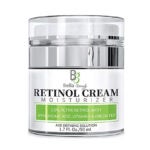
8. Retinol Moisturizer Anti Aging Cream
- Price Range: $10 – $20
- Quantity: 1.7 ounces
- Brand: Bella Beauty
Table Of Contents
- <strong>Best Retinol Creams</strong>
- 1. NATUREWELL Clinical Retinol Advanced Moisture Cream
- 2. LilyAna Naturals Retinol Cream for Face – Runner Up
- 3. Advanced Clinicals Retinol Cream – Best hypoallergenic
- 4. Neutrogena Rapid Wrinkle Repair – Best for wrinkles
- 5. ELEMIS Pro-Collagen Marine Cream – Best high-end
- 6. Olay Regenerist Retinol – Best fragrance-free
- 7. Neutrogena Rapid Wrinkle Repair Retinol – Best Day Cream
- 8. Retinol Moisturizer Anti Aging Cream – Budget pick
- What Does Retinol Cream Do?
- Who Should Use Retinol Cream?
- How To Use Retinol Cream
- What Is Retinol Concetration?
- Pros and Cons of Using Retinol Cream
- Final Thoughts
- Frequently Asked Questions
Best Retinol Creams
Picking the right cream for you will depend on your own skin. I chose these based on their overall user reviews, price, and value.
1. NATUREWELL Clinical Retinol Advanced Moisture Cream – Editor's Choice
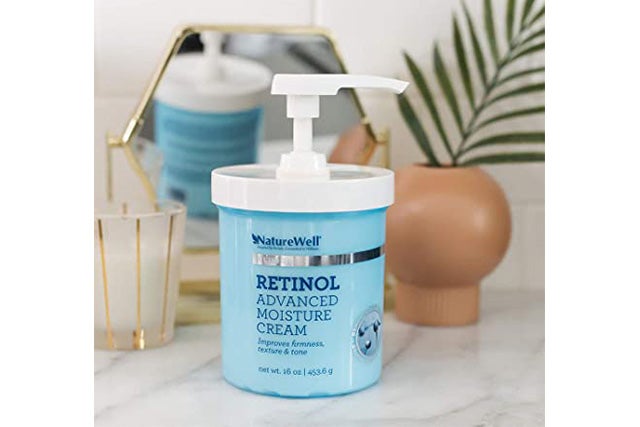
Highlights
- Price Range: $10 – $20
- Quantity: 1 pound
- Brand: NatureWell
Pros
- Dosage pump.
- Uses advanced micro-capsulated retinol.
- Multiple size options.
Cons
- Some complaints about faulty pumps.
One of the best retinol moisturizing creams that you can buy is this one from Naturewell. It’s designed to make your skin smoother and moisturize it, while also slowing down the aging process. Thanks to the reusable pumps, it’s easy to control the cream quantity that comes out of the container. This is a cruelty-free product that delivers just what you need from a retinol cream. It’s available in multiple size options as well.
2. LilyAna Naturals Retinol Cream for Face – Runner Up
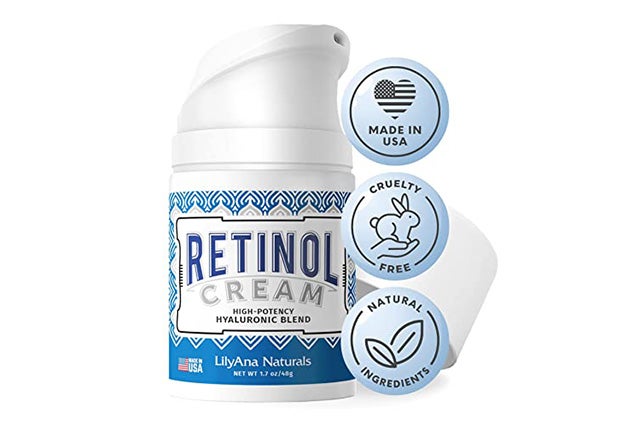
Highlights
- Price Range: $20 – $30
- Quantity: 1.7 ounces
- Brand: LilyAna
Pros
- Made with clean ingredients.
- Purse-friendly design.
- Cruelty-free.
Cons
- Feels too rich for oily skin.
The LilyAna Retinol Cream has a silky, non-greasy texture that quickly absorbs into the skin, leaving it supple and revitalized. The rejuvenating properties of retinol formula are delivered to the skin without the usual drying effects of Vitamin A. Anti-aging ingredients such as Aloe Vera, Hyaluronic Acid, and Vitamin E nourish and hydrate the skin while pure retinol combats any obvious aging signs.
3. Advanced Clinicals Retinol Cream – Best hypoallergenic
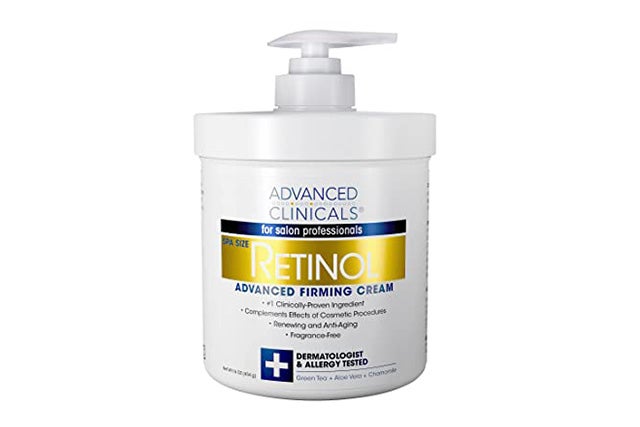
Highlights
- Price Range: $10 – $20
- Quantity: 16 ounces
- Brand: Advanced Clinicals
Pros
- Hypoallergenic formula.
- Good value.
- Non-irritating and hydrating.
Cons
- The dispenser feels flimsy.
Acne, fine lines, UV damage, and wrinkles are all said to be reduced by this lotion, which also boosts collagen formation. This cream, originally developed for post-cosmetic procedure use, is now available to anybody looking to rejuvenate their skin. Made with spectacular ingredients, this cream will help protect the skin on many fronts. With a little aid from Aloe Vera and chamomile, you can replenish your skin’s hydration. Chamomile and green tea help to minimize puffiness.
4. Neutrogena Rapid Wrinkle Repair – Best for wrinkles
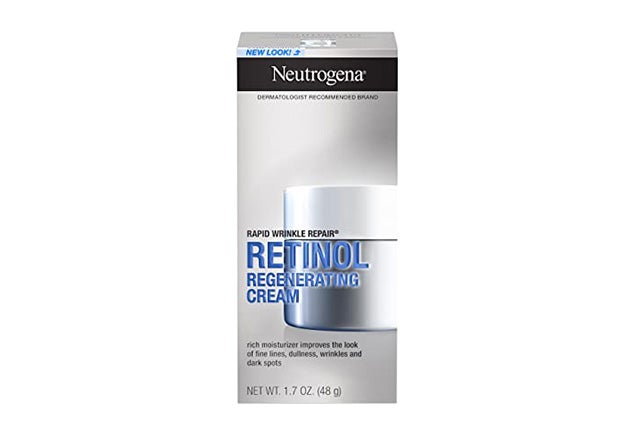
Highlights
- Price Range: $20 – $30
- Quantity: 1.7 ounces
- Brand: Neutrogena
Pros
- Highly moisturizing formula.
- Strengthens skin elasticity.
- Efficient against wrinkles.
Cons
- Not for sensitive skin.
Neutrogena Rapid Wrinkle Repair contains hyaluronic acid as well as anti-wrinkle retinol to help moisturize and revitalize the skin’s texture and appearance. This retinol cream comes from the most widely prescribed retinol brand by dermatologists, therefore it is free of mineral oils, parabens, and synthetic colors. It’s formulated with a glucose complex to help strengthen the barrier of your skin.
5. ELEMIS Pro-Collagen Marine Cream – Best high-end
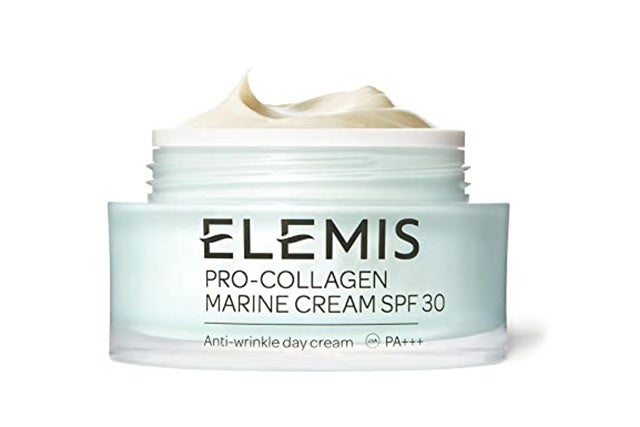
Highlights
- Price Range: $100 – $150
- Quantity: 1.6 ounces
- Brand: Elemis
Pros
- Excellent plant ingredients.
- Smooth and silky texture.
- Contains SPF.
Cons
- Not suitable for oily skin.
If you want to pull out the big guns and invest in what is considered a premium aging cream, here is one to try out. Formulated with extracts from plants such as Ginkgo Biloba or Padina Pavonica, this retinol cream delivers moisturizing properties while looking to efficiently combat premature aging signs. It has a gel-like texture with a little creaminess, but also a 30 SPF for those who want to use the cream during the day.
6. Olay Regenerist Retinol – Best fragrance-free
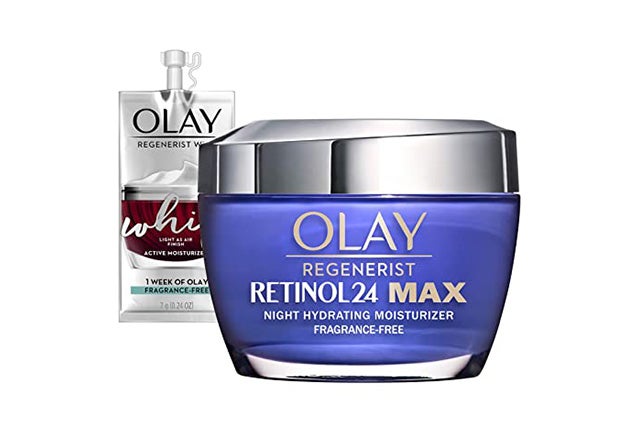
Highlights
- Price Range: $30 – $40
- Quantity: 1.92 ounces
- Brand: Olay
Pros
- No fragrance.
- Easily absorbed by the skin.
- Highly moisturizing.
Cons
- Some complaints about low retinol content.
Olay Regenerist Retinol 24 Max is a nighttime moisturizer that penetrates the skin’s surface to change its appearance and give it a natural-looking boost. This product reduces the appearance of wrinkles and evens out skin tone by adding 20 percent more Retinol 24 Hydrating Complex. You won’t get synthetic dyes or fragrances in this composition.
7. Neutrogena Rapid Wrinkle Repair Retinol – Best Day Cream
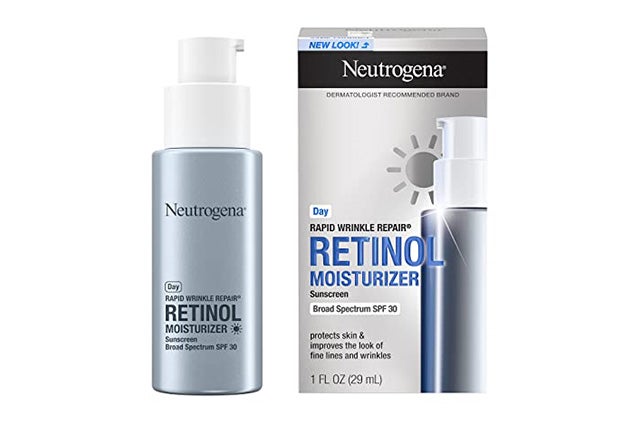
Highlights
- Price Range: $10 – $20
- Quantity: 1 ounce
- Brand: Neutrogena
Pros
- Contains SPF.
- Use on the face and neck.
- Can be applied during the day.
Cons
- The scent feels too strong.
Neutrogena is quite the popular brand amongst skincare enthusiasts, so their retinol cream easily found its way into our top-tier list. This retinol cream preserves the skin’s youthful glow and diminishes the appearance of fine lines and wrinkles. It contains hyaluronic acid, which adds plumping hydration to help hydrate and revitalize the skin’s texture and appearance. Additionally, it helps reduce the appearance of dark spots and texture on the face, brightens, and evens the complexion.
8. Retinol Moisturizer Anti Aging Cream – Budget pick
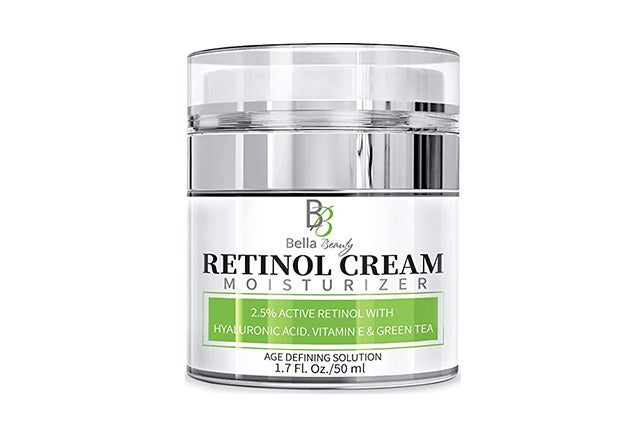
Highlights
- Price Range: $10 – $20
- Quantity: 1.7 ounces
- Brand: Bella Beauty
Pros
- High retinol concentration.
- Highly moisturizing.
- Vegan and cruelty-free.
Cons
- Only one size option.
Claiming to have 2.5 percent active retinol in its formula, this seems to be one of the most potent retinol creams we’ve seen today. It also contains a lot of other interesting, nourishing, and skin moisturizing ingredients, including jojoba oil and hyaluronic acid. The active collagen inside the cream promises to help with wrinkles and restore elasticity to the skin. This natural cream uses a cruelty-free formula and is completely vegan.
What Does Retinol Cream Do?
Retinol is a well-known component in skincare products. It’s a vitamin A derivative that’s commonly used to treat aging skin as well as acne. Retinol is an over-the-counter variant of retinoids.
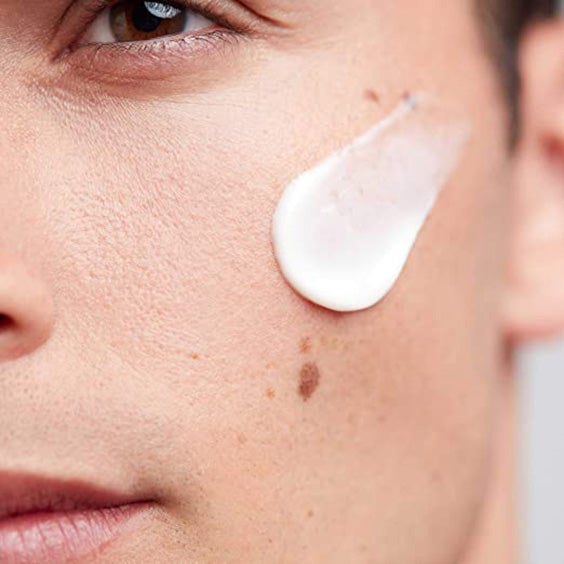
In skincare, retinol is the gold standard component since it modifies the behavior of aging cells to make them act more youthfully. It minimizes the appearance of things like wrinkles and fine lines, improves skin tone, and combats the effects of aging.
Using retinol in anti-aging skincare regimens speeds up skin renewal, boosts collagen production, and lessens things like wrinkles, age spots, and uneven skin texture.
Who Should Use Retinol Cream?
Retinol is often associated with an ingredient used to prevent wrinkles, so a lot of people think you start using it only as you age. However, you can start using retinol in your mid 20s because it also has anti-acne properties and can help stop wrinkles in their tracks.
How To Use Retinol Cream
Incorporating retinol creams into your skincare routine is fairly easy. It’s best to use a pea-sized amount of retinol at first and see how tolerant your skin is. When applying a retinol cream, make sure your skin is dry so it can be properly absorbed.
Retinol creams, like many other skin care treatments, are not all made equal. The combination of retinol and other skincare products, like acne treatments, is often not suggested.
If you have sensitive skin or a skin problem like rosacea, your dermatologist can help you decide if you’d be good with retinol lotions.
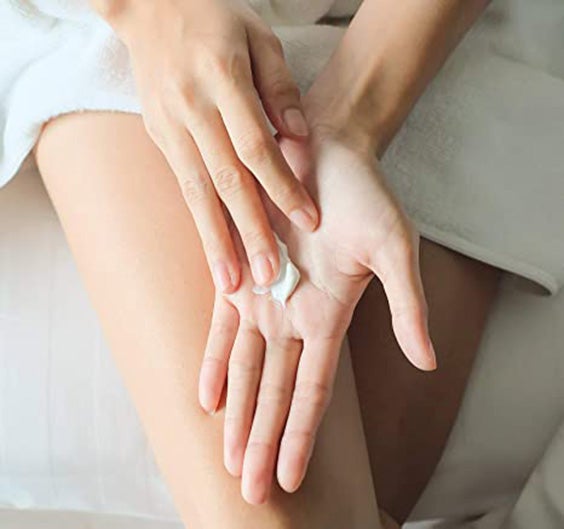
Combine the retinol mixture with your moisturizer if it causes your skin to become flaky and have red spots. Retinol should be used once or twice a week at first to assess how your skin responds, and then gradually increase the frequency to about three times per week.
The day after using retinol, apply a sun protection factor. Always apply retinol creams in the evening because they usually make the skin very sensitive and more prone to UV damage.
Aside from occasional dryness and irritation, most retinol responses are easy to control. As your dermis gets used to the product, a slight sensitivity is normal.
However, if your skin is extremely inflamed, you should avoid using retinol and any other active ingredient-containing skincare products, except for sunscreen. Cleanse with mild soap and moisturize with an unscented lotion.
Retinol can be tried again once the response has subsided. Tolerability may be improved by using the product less frequently, yet regularly.
What Is Retinol Concetration?
In the skincare world, you will often hear talk about concentrations when it comes to how much ingredient is used to make a serum, a cream, a toner, or a moisturizer. Retinol is available in strengths between 0.0015 and 1 percent (sometimes even higher).
Retinol creams usually have between 0.1 and 0.3 retinol, as the Scientific Committee on Consumer Safety states that retinol creams should not exceed the 0.3 retinol threshold, which is the safest.
A mild retinol cream should be your first choice if you’re just starting with retinol or if your skin is extremely dry. This is since retinol can irritate the skin. The greater the product’s potency, the greater the risk of skin irritation.
Pros and Cons of Using Retinol Cream
Retinol can help with many things, so let’s look at what you can expect from creams that use retinol.
• Can Help Reduce Acne
Retinol helps unclog your pores and aids in the reduction of current skin imperfections as well as in the prevention of future breakouts.
Additionally, tretinoin (commonly known as Retin-A), a form of vitamin A, is known to have anti-acne properties by inhibiting specific inflammatory pathways. Acne, especially inflammatory lesions, is less likely to emerge as a result. A retinol moisturizer’s capacity to treat all forms of acne is one of its many advantages.
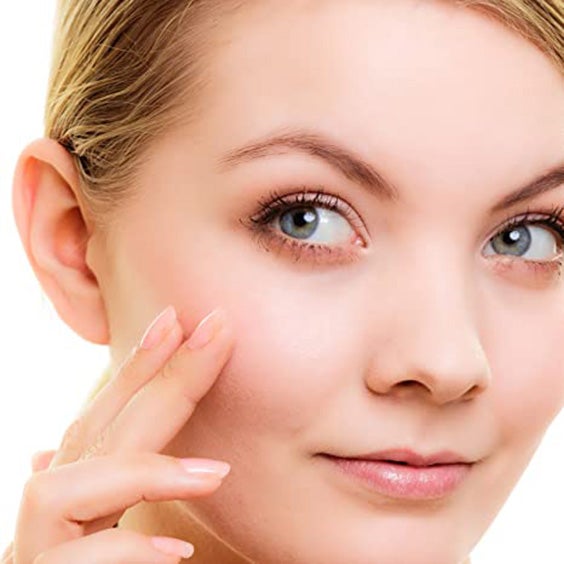
• Can Boost Collagen Production
Maintaining a smooth, taut, and tight skin is the primary function of collagen. We gradually lose it as we grow older, and this is what primarily promotes the formation of deep wrinkles and fine lines and makes us appear older.
Another side effect of collagen depletion is drooping skin that is less elastic than it previously was. Retinol promotes the formation of collagen, which helps maintain the skin smooth and wrinkle-free. As a result, it can help reduce the appearance of sagging.
• Can Smooth Wrinkles and Fine Lines
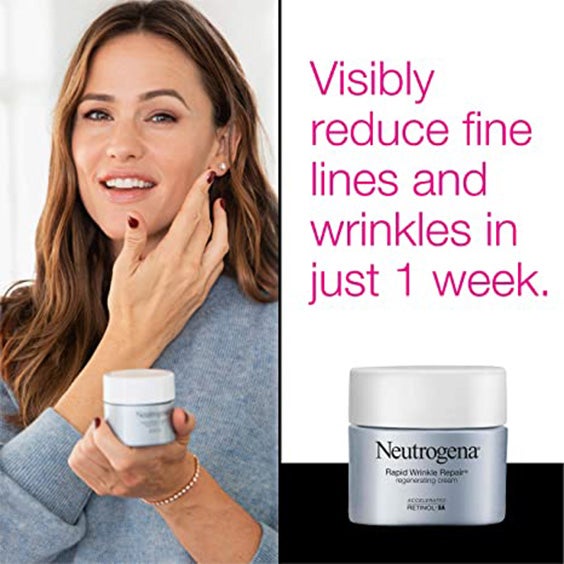
With retinol’s capacity to increase collagen production, wrinkles can be reduced and skin can look more youthful. Further research has shown that retinol can enhance the number of glycosaminoglycans (a hydrating component) in the skin.
This is crucial since it contributes to wrinkle-free skin by ensuring adequate hydration. Retinol-treated skin was also found to be better able to survive harm, resulting in a better long-term appearance.
• Can Cause “Purge”
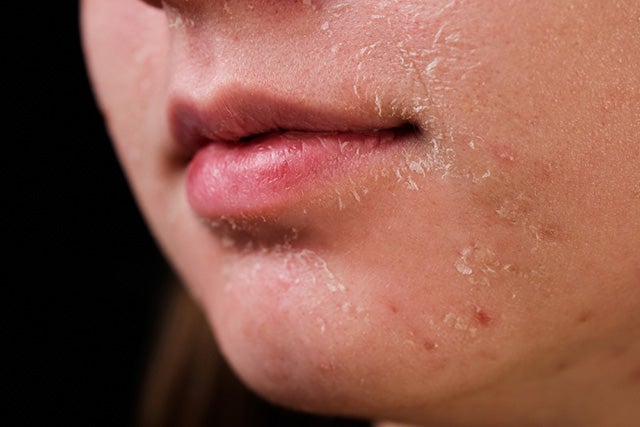
For starters, your skin may deteriorate before it improves. This is referred to as the “purge” and it is a step in the process that causes redness, peeling, and severe acne.
As a first-time user or someone who is reintroducing retinol into their nightly routine, this can be a difficult transition. Common purge reactions include dry skin, irritation, flaking and peeling, and sometimes even pain.
• Makes Skin More Sensitive to UV
Retinol creams, moisturizers, and serums have the potential to increase the sensitivity of your skin to sunlight. So, it’s not recommended to be used during daylight hours or in warm weather, especially during the warmer months. Always wear sunscreen after having used a retinol cream.
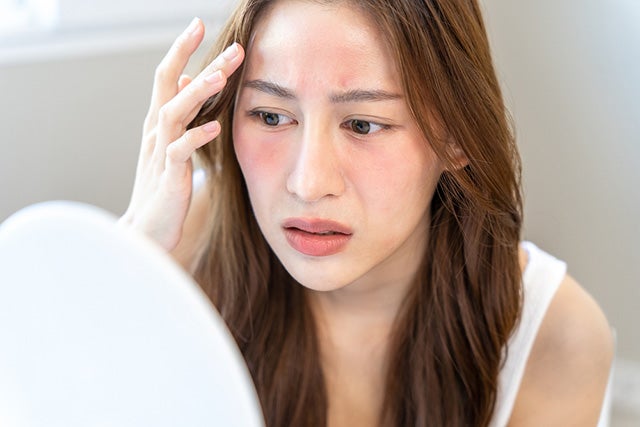
• Makes Skin Thinner
Retinol destroys epidermal layers by accelerating cell turnover, which is visible as your skin begins to flake and peel. Retinol, a harsh substance, is more likely to irritate those with thinner skin because of the increased risk of harm.
As your dermis thins out from continued use of retinol, you may notice greater irritation and sensitivity in your skin. Although vitamin A/retinol cream has several advantages, the major disadvantage is that thin skin is more prone to tearing and bruising.
Skin elasticity and dryness are both exacerbated when you have thinner skin. Retinol’s side effects can be serious, and this is one of them.
• May Cause Irritation
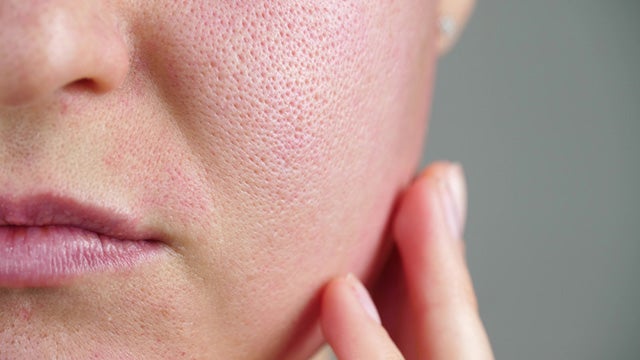
Even if your skin isn’t extremely sensitive, retinoids can cause a lot of redness and irritation. Retinol creams, moisturizers, and serums are almost universally associated with mild to severe skin irritation, such as redness, peeling, and dehydration. A lack of nightly moisturizing will make them more noticeable.
Final Thoughts
A dermatologist should be consulted before using retinol since it might be irritating to some skin types. In addition, they may advise you on how much retinol to use and how often to apply it before you buy any items. And look at our list of best pillowcases for skin for more great recs!
Photo credit: shisu_ka/Shutterstock; Julia Diak/Shutterstock:
Alexander Sobol/Shutterstock
Frequently Asked Questions
Neutrogena is a brand that usually delivers great results because of its formula that helps reduce wrinkles while also moisturizing the skin.
Hyaluronic acid is great for dry skin, whereas retinol is great for those who want to improve their skin’s appearance by increasing collagen production. However, users must exercise caution while selecting the formulations they take because they offer numerous advantages that can work together for improved results.
It’s best to start using retinol in your mid-20s or early 30s and always apply products that contain retinol in the evening. Retinol makes skin more prone to UV damage, so be sure to apply SPF the next day after using a retinol cream.

